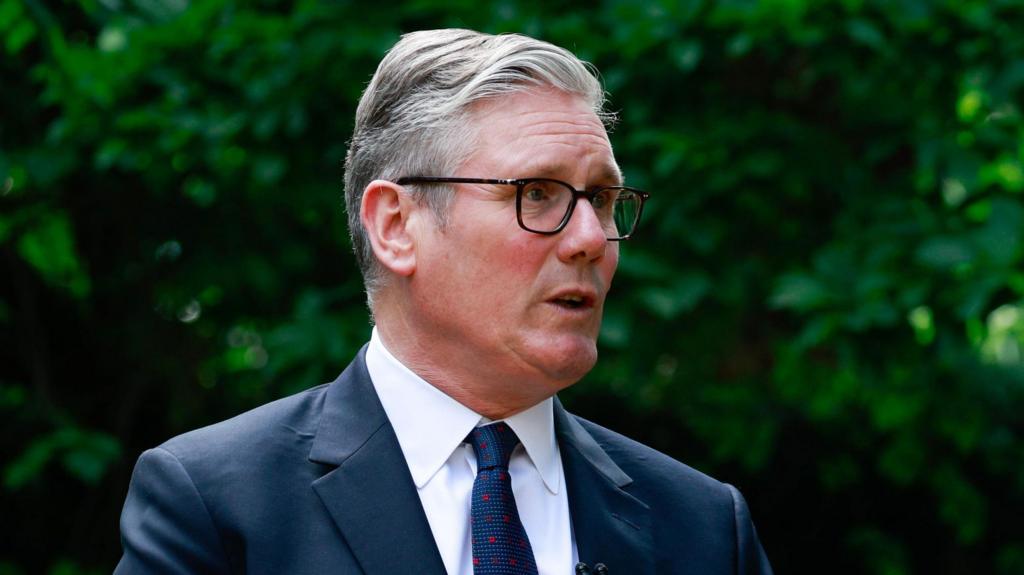Prime Minister Keir Starmer has committed the UK to a new NATO target: allocating 5% of its GDP to national security by 2035. This commitment comes as 32 NATO members, including the UK, convene in the Netherlands to finalize the agreement.
The 5% target is divided: 3.5% for core defense and 1.5% for related areas like cybersecurity and resilience. This structure aims to address US President Trump’s calls for increased spending while providing budgetary flexibility for EU nations.
Downing Street has indicated that initiatives such as counter-smuggling operations and energy security measures could contribute to the national security spending quota.
Ahead of the summit, Prime Minister Starmer emphasized the UK’s need for “agility and a clear-eyed sense of national interest” in navigating current global uncertainties. He further stated that economic security is intrinsically linked to national security, with this strategy creating jobs and economic growth.
NATO’s 32 member states are bound by a collective defense agreement. Since Russia’s 2022 invasion of Ukraine and President Trump’s re-election, pressure to increase defense spending has intensified.
While the previous NATO target was 2% of GDP on defense, only 23 members met this goal in 2023 (up from three in 2014). President Trump previously declared 2% insufficient, advocating for a 5% target and even suggesting repercussions for non-compliant allies.
Earlier this year, Prime Minister Starmer outlined plans to increase UK defense spending to 2.5% of GDP by April 2027, aiming for 3% by 2034 if economically feasible. The government projects reaching 4.1% on national security spending by 2027.
The 1.5% allocated to “resilience” encompasses border security and cyber defense, with the UK aiming to meet this portion by 2025. Core defense spending is projected to reach 3.5% by 2035, but the government has yet to detail funding mechanisms for this.
Alongside the spending pledge, the government released its National Security Strategy, highlighting the need for greater competitiveness in various sectors, including science, technology, and education, while emphasizing job creation resulting from increased defense investment.
NATO Secretary General Mark Rutte described the 5% spending commitment as an ambitious and fundamental step for future security. However, the practical implementation and universal adherence to this target remain uncertain, with conflicting reports regarding potential opt-outs for some nations.
Ukraine, though invited to the summit dinner, will not participate in North Atlantic Council discussions. Reports indicate that contentious issues, including a new Russia strategy, have been removed from the summit’s official agenda.
Europe anticipates President Trump’s arrival at the NATO summit amidst discussions on Iran, defense spending, and the 5% target he has demanded from allies.
Increased defense spending will dominate discussions as NATO members convene in The Hague.
Prime Minister Mark Carney highlighted Canada’s need for greater self-reliance in security matters.
Secretary General Mark Rutte issued a warning that Russia may be poised to attack NATO within five years.
Analysts question whether the measures proposed to deter Russian aggression also serve to appease the US President.

